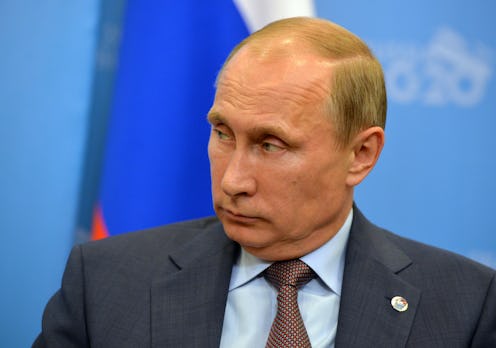News
Why Did Russia Free Opposition Leader?
The five year prison sentence of Russian opposition leader Alexey Navalny was suspended on appeal Wednesday in a court in Russia's Kirov region. Navalny was convicted over the summer of the theft of about $500,000 from a timber firm four years ago. He maintained his innocence and said that the charges were set up to discourage him from exposing corruption in the Russian government and to stop him from running for elected office. "One thing is for sure, they will not succeed in pushing me and my allies out of political life," Navalny said after the hearing.
Instead of a five year prison term, the failed Moscow mayoral candidate will serve a five year suspended sentence followed by another five years of probation. He was unexpectedly freed after his conviction in July, when thousands took to the streets to protest what was seen as an unjust trial. The whole sequence of events was rather unexpected, given the Kremlin's usually-unrelenting prosecution of its opponents.
The harsh crackdowns on dissidents seemed to have gotten more aggressive over the years. The courts sentenced three members of punk feminist band Pussy Riot to harsh prison terms for "hooliganism," and the government is currently in the midst of trying a multinational crew of Greenpeace activists who tried to scale an oil rig in the Arctic under its piracy statutes — laws that carry maximum sentences of more than a decade.
But Navalny isn't a liberal. The opposition leader is a staunch nationalist and more of an anti-corruption candidate than an opponent of the ideology of United Russia — President Vladimir Putin's party — in any substantive way. His campaigns and public addresses had the same nationalist language that's found in those of pro-Kremlin officials, and made it difficult for him to mobilize Russia's liberal intelligentsia. In contrast, the ideologies of Pussy Riot, Greenpeace, and other opposition groups have more fundamental problems with the beliefs of United Russia.
This is Navalny's second lucky break in just a few weeks. On Oct. 10, a court ruled that those who have served out a felony conviction can still run for public office after they've repaid their debt to society. The ruling overturned a law signed by Putin which disqualified such people indefinitely.
Still, five-plus-five deal means that he will be unable to run in the country's next presidential election, to be held in 2018. That's a blow to a man whose public profile has been raised exponentially by his trials with Russian authorities, but still a face-saving measure for Russia. "I think the political motivation of this case is evident to everybody," he said.
